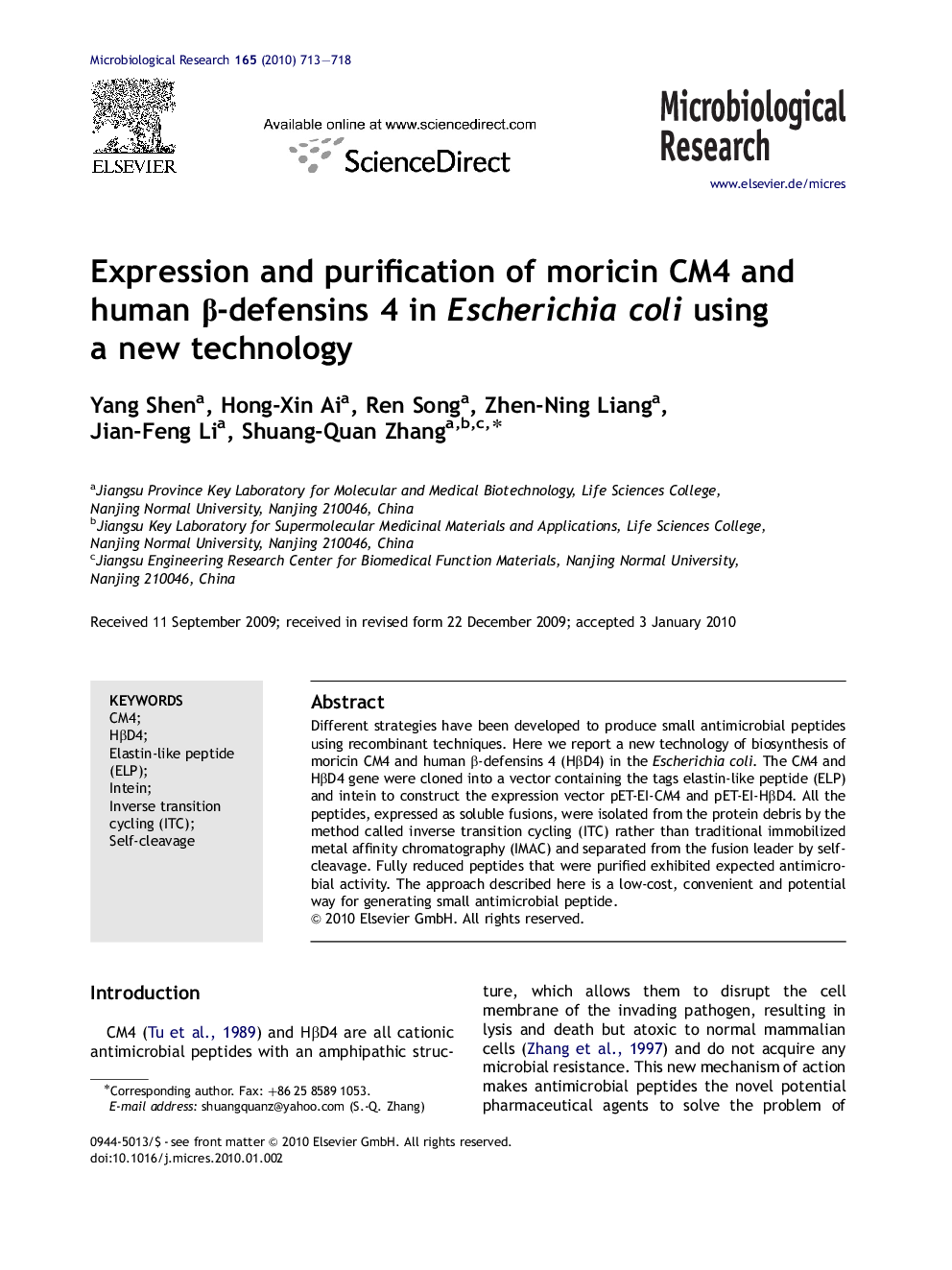| Article ID | Journal | Published Year | Pages | File Type |
|---|---|---|---|---|
| 2092439 | Microbiological Research | 2010 | 6 Pages |
Different strategies have been developed to produce small antimicrobial peptides using recombinant techniques. Here we report a new technology of biosynthesis of moricin CM4 and human β-defensins 4 (HβD4) in the Escherichia coli. The CM4 and HβD4 gene were cloned into a vector containing the tags elastin-like peptide (ELP) and intein to construct the expression vector pET-EI-CM4 and pET-EI-HβD4. All the peptides, expressed as soluble fusions, were isolated from the protein debris by the method called inverse transition cycling (ITC) rather than traditional immobilized metal affinity chromatography (IMAC) and separated from the fusion leader by self-cleavage. Fully reduced peptides that were purified exhibited expected antimicrobial activity. The approach described here is a low-cost, convenient and potential way for generating small antimicrobial peptide.
